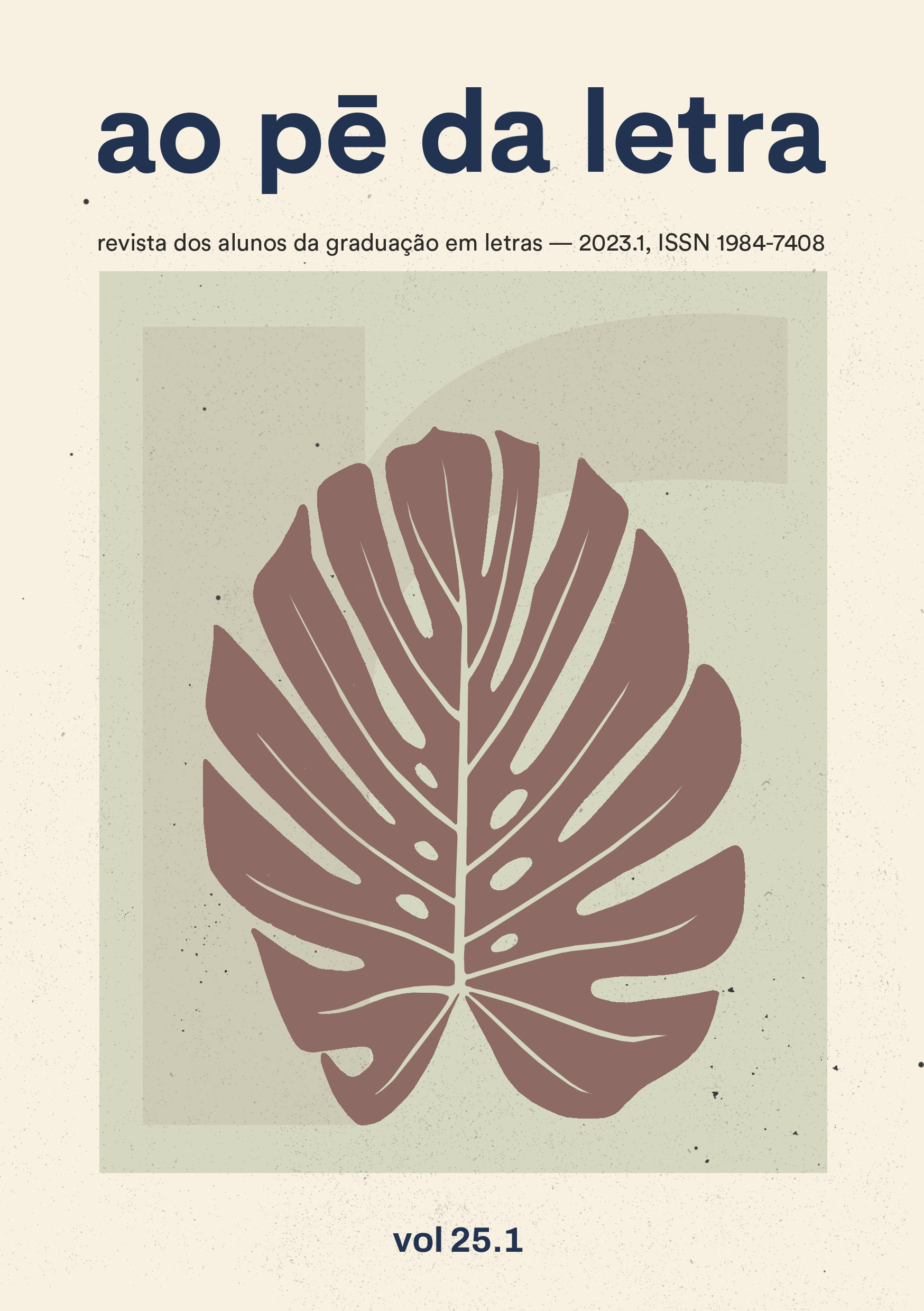FLEABAG: THE USE OF IRONY AS A FACE-SAVING STRATEGY
Schlagworte:
fleabag, ironia, face, AAF, preservaçãoAbstract
This article aims to analyze the use of irony as a “Face-threatening Acts (FTA) minimizing strategy” to preserve the face of the main character and narrator of the TV series Fleabag (2016) by Phoebe Waller-Bridge. Two extracts were selected from the first season and they are analyzed in light of the concept of irony by Grice (1991) as the flouting of the maxim of quality and the face-saving model of the politeness theory by Brown and Levinson (1987). The samples observed illustrate the use of the mentioned figured speech as a way of maintaining the face of the protagonist by preventing her from exposing the traumas regarding the death of her mother and best friend. Therefore, while controlling the narrative by directly addressing the audience, the main character attempts to manipulate her discourse through the ironic use of language as a way of preserving herself from publicly revealing the chaos of her real emotional status.
Literaturhinweise
ATTARDO, Salvatore. Humor in Language. Oxford Research Encyclopedia Of Linguistics, [S.L.], v. 1, n. 1, p. 1-17, 29 mar. 2017. Oxford University Press. http://dx.doi.org/10.1093/acrefore/9780199384655.013.342.
BROWN, Penelope; LEVINSON, Stephen C.. Politeness: some universals in language usage. Cambridge: Cambridge University Press, 1987.
GRICE, P. Studies in the way of words. Londres, England: Harvard University Press, 1991.
HUTCHEON, Linda. The Complex Functions of Irony. Revista Canadiense de Estudios Hispánicos, Edmonton, v. 16, n. 2, 1992, p. 219-234.
WALLER-BRIDGE, Phoebe. Fleabag: the scriptures. New York: Ballantine Books, 2019.
WOODS, Faye. Too Close for Comfort: direct address and the affective pull of the confessional comic woman in chewing gum and fleabag. Communication, Culture And Critique, [S.L.], v. 12, n. 2, p. 194-212, 12 abr. 2019. Oxford University Press (OUP). http://dx.doi.org/10.1093/ccc/tcz014.
Downloads
Veröffentlicht
Versionen
- 2024-05-08 (2)
- 2024-02-02 (1)
Ausgabe
Rubrik
Lizenz
Copyright (c) 2024 Autor, concedendo à revista o direito à primeira publicação

Dieses Werk steht unter der Lizenz Creative Commons Namensnennung 4.0 International.
Autores que publicam nesta revista concordam com os seguintes termos:
- Autores mantém os direitos autorais e concedem à revista o direito de primeira publicação, com o trabalho simultaneamente licenciado sob a Licença Creative Commons Attribution 4.0 Internacional (CC BY 4.0) que permite o compartilhamento do trabalho com reconhecimento da autoria e publicação inicial nesta revista.
- Autores têm autorização para assumir contratos adicionais separadamente, para distribuição não-exclusiva da versão do trabalho publicada nesta revista (ex.: publicar em repositório institucional ou como capítulo de livro), com reconhecimento de autoria e publicação inicial nesta revista.
- Autores têm permissão e são estimulados a publicar e distribuir seu trabalho online (ex.: em repositórios institucionais ou na sua página pessoal) a qualquer ponto antes ou durante o processo editorial, já que isso pode gerar alterações produtivas, bem como aumentar o impacto e a citação do trabalho publicado (Veja O Efeito do Acesso Livre).

